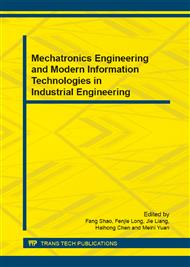p.1560
p.1564
p.1570
p.1574
p.1579
p.1583
p.1589
p.1593
p.1597
An Improved Cloud Adaptive Genetic Algorithm Based on Cloud Computing for Active Optimization Calculation
Abstract:
Under the background of huge amounts of data in large-scale power grid, the active power optimization calculation is easy to fall into local optimal solution, and meanwhile the calculation demands a higher processing speed. Aiming at these questions, the farmer fishing algorithm which is applied to solve the problem of optimal distribution of active load for coal-fired power units is used to improve the cloud adaptive genetic algorithm (CAGA) for speeding up the convergence phase of CAGA. The concept of cloud computing algorithm is introduced, and parallel design has been done through MapReduce graphs. This method speeds up the calculation and improves the effectiveness of the active load optimization allocation calculation.
Info:
Periodical:
Pages:
1579-1582
Citation:
Online since:
January 2015
Authors:
Price:
Сopyright:
© 2015 Trans Tech Publications Ltd. All Rights Reserved
Share:
Citation:


